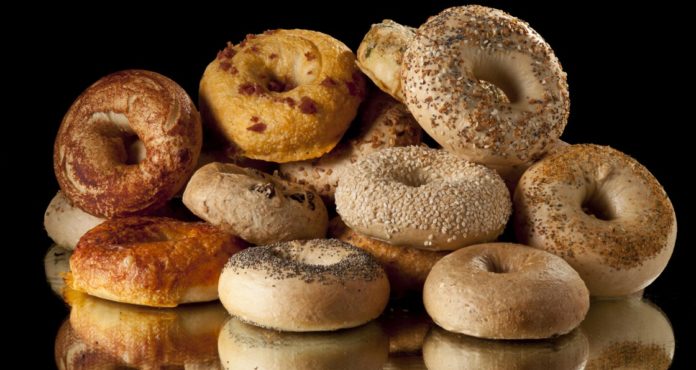
In what seems contrary to popular dietary advice, a small new study shows that doubling the saturated fat in a person’s diet does not drive up the levels of saturated fat in the blood.
Rather, the study found that it was the carbohydrates in people’s diets that were linked with increased levels of a type of fatty acid linked to heart disease and type-2 diabetes. The results of the study, which followed 16 middle-aged, obese adults for 21 weeks, were published Nov. 21 in the journal PLOS ONE.
Saturated fats, largely from meat and dairy products, have been vilified for decades as a primary culprit in promoting heart disease. Even today, most health authorities maintain this stance.
However, in recent years, scientists have seen the ill effects of completely replacing saturated fat with carbohydrates, particularly the simple (refined) carbs that are found in so many processed foods. A large analysis published in 2009 in the American Journal of Clinical Nutrition found that swapping saturated fats with carbs had no benefit in reducing people’s risk of heart disease. But replacing those so-called bad fats with polyunsaturated fats — found in fish, olives and nuts — did.
“The unintended consequence of telling everyone to restrict fat was that people ate an even greater amount of carbohydrates,” said Jeff Volek, senior author on the new study and a professor of human sciences at The Ohio State University. “This is a fact. It’s not a stretch to make the connection between overconsumption of carbs and the obesity and diabetes epidemic.”
The new study “challenges the conventional wisdom that has demonized saturated fat,” Volek said, because it shows that saturated fats don’t need to be replaced at all — with carbs or polyunsaturated fats.
The study, it should be noted, was funded by a grant from the Dairy Research Institute, the National Cattlemen’s Beef Association, the Egg Nutrition Center, and the Robert C. and Veronica Atkins Foundation, although the researchers reported that the funders had no role in the study design or decision to publish the research.
For the analysis, researchers placed 16 participants on a tightly controlled diet of fats and carbs. The participants were on their own high-carb, low-fat diets before entering the study. For the first three weeks of the study, they doubled or tripled their saturated-fat intake, consuming 84 grams of saturated fats, and 47 grams of carbs per day. Researchers found no jump in the levels of saturated fat in the blood during this phase.
Then, every three weeks after this, the dieters decreased the fat and increased their carb intake, ending the study on a diet of 32 grams of saturated fat and 346 grams of carbs per day. The final phase modeled U.S. dietary recommendations for carbs and included whole grains. Throughout this time, the researchers monitored participants’ fatty-acid levels to determine if they were accumulating saturated fatty acids and turning carbs into fat.
The researchers found that as the amount of dietary fat was decreased, there were no changes in the levels of saturated fat in the participants’ blood. But one kind of fatty acid, called palmitoleic acid, did progressively increase.
“Higher proportions of palmitoleic acid in blood or adipose tissue are consistently associated with a myriad of undesirable outcomes, such as obesity, …inflammation, metabolic syndrome, type 2 diabetes, coronary disease, heart failure, and incidence and aggressiveness of prostate cancer,” the researchers wrote.
These findings add new evidence suggesting that dietary refined carbohydrates — found in foods such as white breads, rice, cereals, potatoes, and sugars — are the primary driver of circulating saturated fatty acids in the bloodstream, not saturated fat as common wisdom has said.
However, the results should be considered preliminary as it difficult to make conclusions about the risk of heart disease from a study so small and short. Furthermore, the study sample — comprised of obese people with insulin resistance — may be more sensitive to the effects of carbohydrates than the average person, so it is not possible to say whether these results would apply to the general population.
Furthermore, long-term health outcomes are likely to differ from those observed in this short study, particularly when it comes to the health effects of various types of fats.
We know from many long-term studies, for example, that replacing saturated fats from red meat and dairy with vegetable fats high in polyunsaturated and monounsaturated fats will reduce risks of heart disease. This is characteristic of the Mediterranean diet.
Also, other studies have shown beneficial properties of dietary palmitoleic acid, and its role in health remains an open question.
